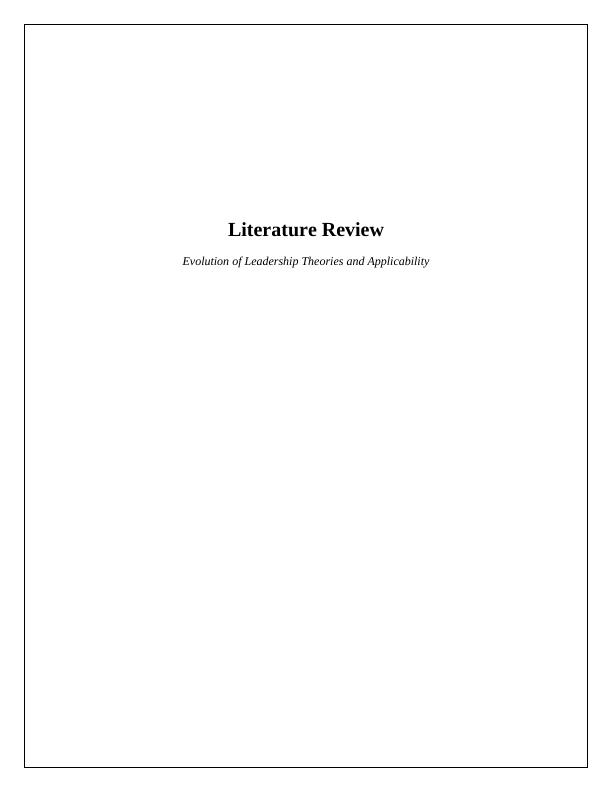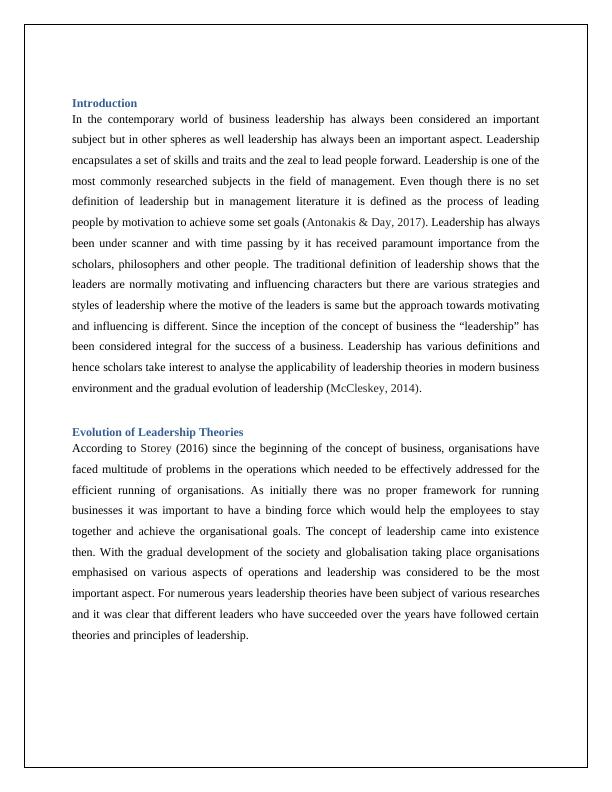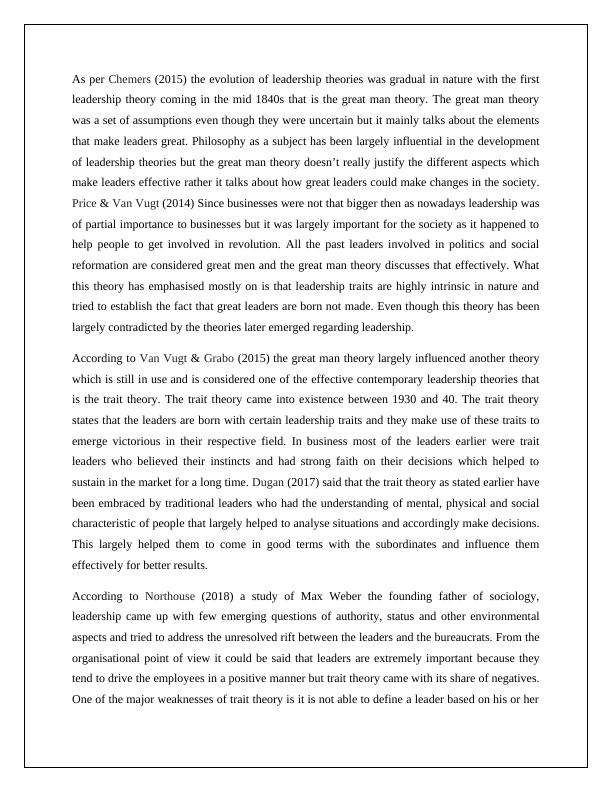Evolution of Leadership Theories and Applicability
9 Pages2746 Words47 Views
Added on 2022-12-30
About This Document
This article explores the evolution of leadership theories and their applicability in the modern business environment. It discusses the great man theory, trait theory, behavioral theory, contingency theory, and transformational leadership theory. The article highlights the strengths and weaknesses of each theory and how they shape leadership styles.
Evolution of Leadership Theories and Applicability
Added on 2022-12-30
ShareRelated Documents
End of preview
Want to access all the pages? Upload your documents or become a member.
Evolution of Leadership Theories Literature Review 2022
|7
|1264
|45
Theories of Leadership
|10
|2760
|45
Assignment on Political Leadership
|8
|2885
|206
The Path-Goal Theory of Leadership
|7
|2873
|372
Are The Leaders Born or Made?
|8
|1371
|293
Leadership and Change Management
|13
|770
|56



